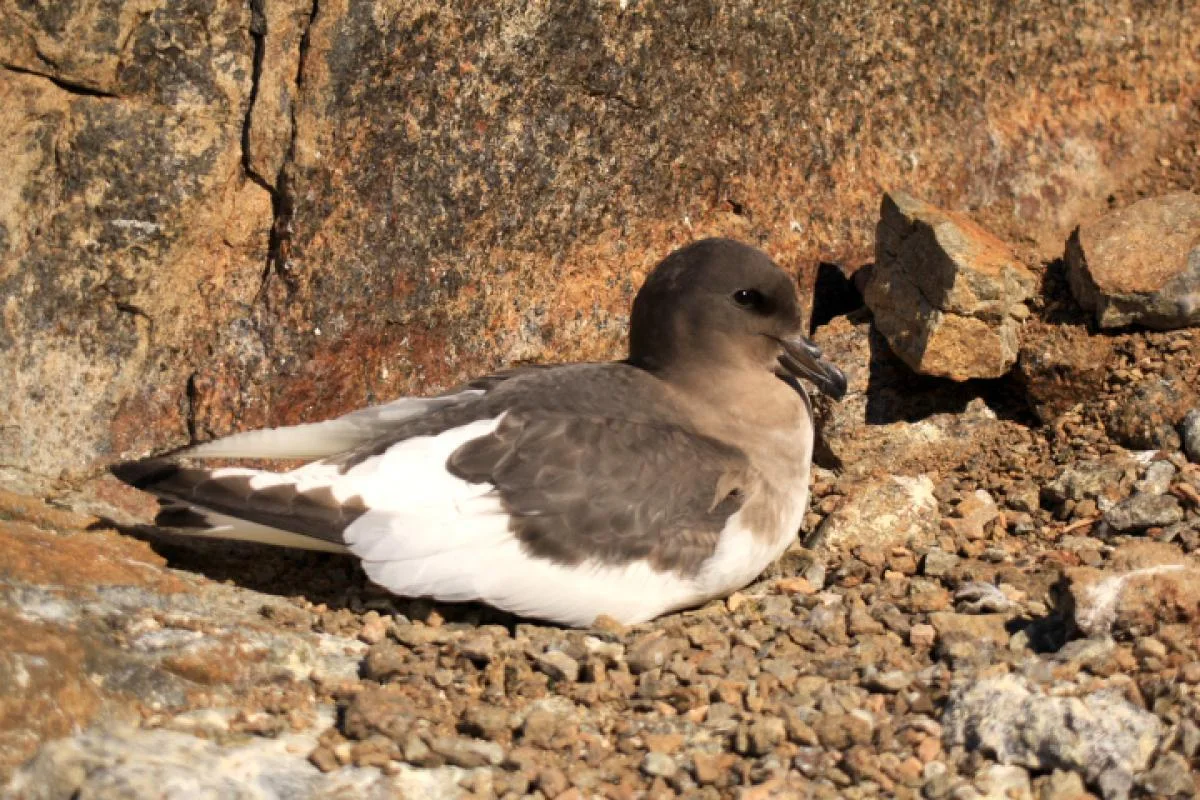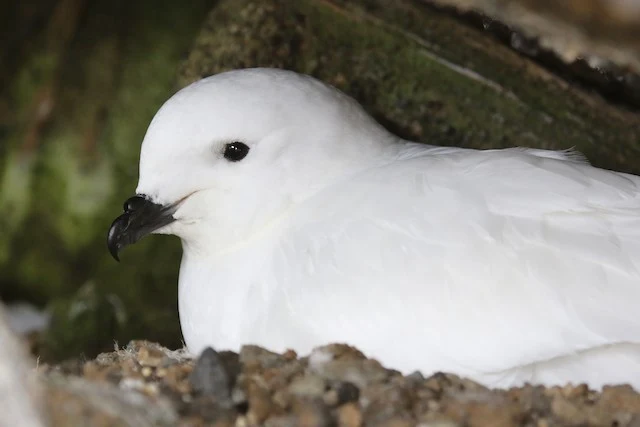Large-Scale Failure of Entire Bird Population to Breed
Extreme snowstorms lead to large-scale seabird breeding failures in Antarctica: Current Biology
According to a survey published, open access, yesterday in the Cell Press journal, Current Biology almost the entire breeding population of three seabirds failed to breed on important breeding grounds in Antarctica, due to unseasonably high snowfall in the Antarctic 'Summer' (December 2020-January 2022) when breeding normally takes place. The unusual weather is almost certainly due to man-made climate change.
The researchers found not a single nest of the South Polar skua, and only a handful of the nests of the Antarctic petrel, Thalassoica antarctica, and Snow petrel, Pagodroma nivea, on the main breeding ground of Dronning Maud Land (Queen Maud Land) in the Norwegian-administered sector of Antarctica.
According to information from Cell Press:
The arrival of the new year is a prime time for Antarctic birds like the south polar skua, Antarctic petrel, and Snow petrel to build nests and lay their eggs. However, from December 2021 to January 2022, researchers did not find a single skua nest on Svarthamaren, one of the regions where the birds go to raise their young. Similarly, the number of Antarctic petrel and Snow petrel nests dropped to almost zero.
In these regions, climate change caused snowfall and snow accumulation to be significantly higher than in previous years. Now, a study published on March 13 in the journal Current Biology shows that these unusually strong snowstorms have interfered with the birds' ability to breed.We know that in a seabird colony, when there's a storm, you will lose some chicks and eggs, and breeding success will be lower, but here we're talking about tens if not hundreds of thousands of birds, and none of them reproduced throughout these storms. Having zero breeding success is really unexpected.
It wasn't only a single isolated colony that was impacted by this extreme weather. We're talking about colonies spread over hundreds of kilometers, so these stormy conditions impacted a really large part of land, meaning that the breeding success of a large part of the Antarctic petrel population was impacted.
"Until recently, there were no obvious signs of climate warming in Antarctica except for on the peninsula, but in the last few years, there have been new studies and new extreme weather events that started to turn the way we see climate change in Antarctica.
When it comes to storm severity, it's both the wind and the snow accumulation. There aren't many places where we have the right kinds of snow measurements, and it plays an important role in explaining the breeding success of the birds.
I think our study shows in a very strong way that these extreme events do have a very strong impact on seabird populations, and climate models predict that the severity of these extreme events will increase.
Sébastien Descamps, first author
Norwegian Polar Institute.
Tromsø, Norway.
Svarthamaren and nearby Jutulsessen are home to two of the world's largest Antarctic petrel colonies and are essential nesting grounds for Snow petrels and south polar skua. From 1985 to 2020 in Svarthamaren, the colony contained between 20,000 and 200,000 Antarctic petrel nests, around 2,000 Snow petrel nests, and over 100 skua nests annually.
In the 2021-2022 season, there were only three breeding Antarctic petrel, a handful of breeding Snow petrels, and zero skua nests. Similarly, in Jutulsessen, there were no Antarctic petrel nests in summer of 2021 to 2022 despite previous years having shown tens of thousands of active nests.
These birds lay their eggs on bare ground, so with enough snow, the ground becomes inaccessible, and chick-raising becomes impossible. The storms also have a thermoregulatory cost -- the birds must spend their available strength sheltering, keeping warm, and conserving energy.
Descamps hopes that over time, the model used to predict storm severity can be adjusted to be even more accurate.
Summary
Climate change increases the frequency and intensity of extreme weather events that negatively impact wildlife, from individuals to whole ecosystems1. In polar environments, such events include heat waves2, anomalous sea ice concentrations3 and storms4. Polar seabirds are adapted to withstand harsh conditions, and although extreme weather events affect their breeding success and other demographic rates, they are thought to affect only a part of the population. Complete breeding failure of an entire population due to extreme environmental conditions is rarely observed5. Here we report how exceptional storm activity in Dronning Maud Land (DML), Antarctica, in the austral summer of 2021/2022 caused almost complete and large-scale breeding failures of the area’s three most common seabird species — Antarctic petrel (Thalassoica antarctica), Snow petrel (Pagodroma nivea) and South polar skua (Stercorarius maccormicki).
Descamps, Sébastien; Hudson, Stephen; Sulich, Joanna; Wakefield, Ewan; Grémillet, David; Carravieri, Alice; Orskaug, Sebastian; Steen, Harald
Extreme snowstorms lead to large-scale seabird breeding failures in Antarctica
Current Biology; (2023) 33(5), R176-R177. DOI: 10.1016/j.cub.2022.12.055
Copyright: © 2023 The authors.
Published by Elsevier Inc. Open access
Reprinted under a Creative Commons Attribution 4.0 International license (CC BY 4.0)






No comments :
Post a Comment
Obscene, threatening or obnoxious messages, preaching, abuse and spam will be removed, as will anything by known Internet trolls and stalkers, by known sock-puppet accounts and anything not connected with the post,
A claim made without evidence can be dismissed without evidence. Remember: your opinion is not an established fact unless corroborated.